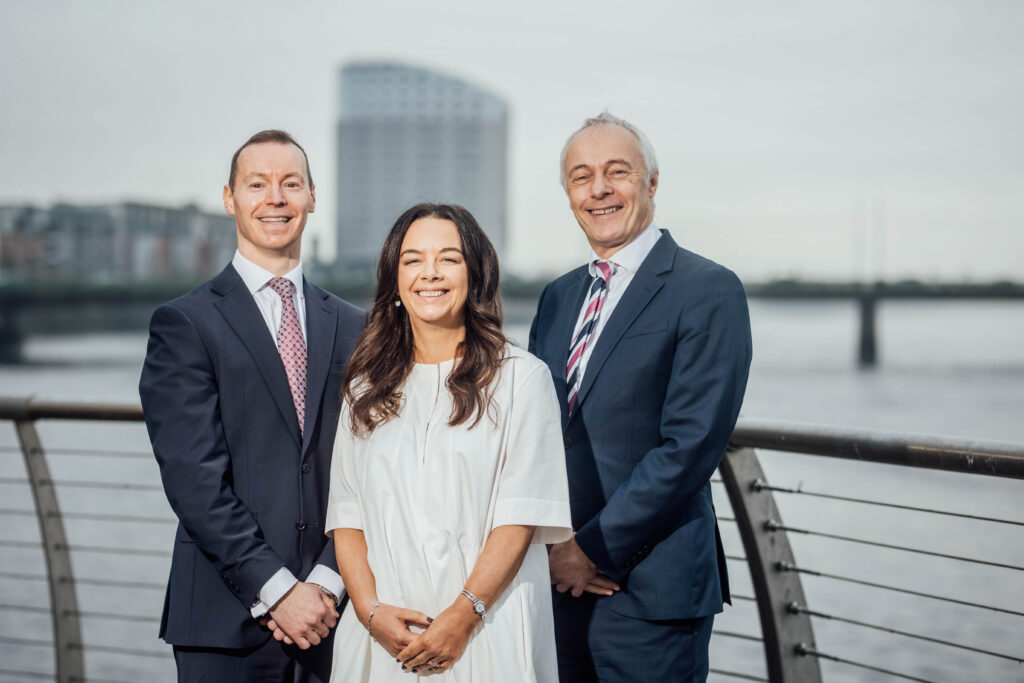As the global effect of Covid-19 increases daily, so too does the threat to the health and safety of employees in the workplace. While working remotely can be facilitated in certain circumstances, there is still the need to maintain the continuity of essential services such as hospitals, supermarkets, and pharmacies. Employers in Ireland have a legal obligation to protect the safety and welfare of their employees under the Safety, Health and Welfare Act 2005.
Many business in Ireland have proactively introduced policies such as social distancing, the use of personal protective equipment, the erection of special perspex protective screens and in some cases sanitation stations and queue control. Regular risk assessments are encouraged and training should be provided for employees to recognise Covid-19 symptoms and the steps that should be taken if they suspect they may have come into contact with someone who is affected.
On that note, lets compare how other countries have successfully dealt with the virus to date:
China
A watchful eye has been placed on China and their ambitious and aggressive disease containment effort to slow the spread of this deadly virus.
In January, the Chinese government took the bold step of putting the country in lockdown. They suspended all mass gatherings and events, schools were shut and social distancing measures were the new norm. Travel was restricted to only essential services such as food and healthcare, wireless transactions were encouraged and hygiene control measures were implemented. While Ireland has now taken a similar approach, China has introduced additional measures to help protect their people from the spread of the virus.
Whilst the use of surgical masks is already commonplace by the general population, Chinese health personnel are of the opinion that they only slightly reduce the spread from an infected person and are not an effective barrier to virus particles. They have taken the view that high filtration masks such as N95 masks and protective clothing (goggles and gowns) should be used in hospitals where healthcare workers are in direct contact with infected patients. The Chief Medical Officer has recently and for the first time recommended that the general public should use face coverings in public places.
Additionally, China have relied heavily on technology when assessing a person’s health status. A colour based phone application has been introduced which is a traffic light system to assess a person’s health status when they are availing of essential services. People with a status red must stay quarantined for 14 days and provide regular check in’s on a chat application. People with yellow have to stay inside for seven days and people with green are allowed to travel freely. As well as that, universal temperature monitoring has been introduced with checkpoints at building entrances and officials going door-to-door to check people’s temperatures and providing contract tracing.
In the past few weeks, China has seen a major decline in the number of Covid-19 cases and in effect has shown other countries, such as Ireland, that extreme measures will aid the reduction of the spread of the virus.
Singapore
Singapore was one of the earliest countries to detect Covid-19 and appeared to be a leader in keeping the virus at bay. However, recently there has been an exponential rise in cases. This can only be put down to complacency among the general population considering they are one of the only countries to have invested heavily in outbreak preparation and building health care infrastructure since the outbreak of SARS in 2003.
Since the second wave of cases, Singapore has implemented ‘circuit breaker’ measures. They have closed workplaces except for essential services and services vital to the global supply chain. Interagency cooperation is encouraged between the contact tracing teams of the ministry of health and the Singapore police force for the purposes of rapidly determining links between individuals with confirmed Covid-19 and their contacts.
Quarantine measures are now aggressive in Singapore and the use of “stay home notices” for workers returning from countries with community transmission in an effort to limit the viral chains of transmission. These notices are similar to quarantine orders where they are legally enforceable and those who defy these notices will be prosecuted and fined.
Additionally, they have invested heavily in technology. They have developed a smartphone app called “TraceTogether” which identifies people who have been exposed to individuals infected with the virus. It allows employers to vet customers as they enter into a business so as to protect their staff against the contraction of the disease. As well as this app, there is ongoing engagement between the public and the government through one way messaging on WhatsApp. Government officials can deliver trusted information to its citizens frequently and consistently. A similar measure in Ireland could be an effective and would deliver live and reliable health updates quickly.
The second wave of Covid-19 cases in Singapore shows that having the infrastructure in place to deal with a pandemic is not sufficient to stop the virus. The general population must buy-in to achieve the common goal which is to save lives. This underlines the importance of employers duty of care to their employees in mitigating the risk of infection in the workplace.
Japan
Japan has adopted a different approach to flattening the curve. It has become known as the “Land of the Rising Calm” where they have adopted almost lax measures to allay public anxiety and ensure continued economic activity.
While many countries, including Ireland have two sets of tools to contain the outbreak – social distancing and case management, Japan appears to have opposed this global trend.
Individuals have the freedom to live their lives and it appears to be business as usual. They have opted not to lockdown the country insisting that it will only instil fear and panic. Non-essential businesses such as restaurants and cafés remain open and public transportation is continuing to operate as normal.
There is no real emphasis on testing in Japan and this perhaps may be the reason why there has not been as many reported cases of Coronavirus. Japan has an estimated population of 126 million and they have only tested around 17,000 individuals to date. The Japanese National Institute of Infectious Diseases has argued that this strict testing criteria is in place to preserve limited medical resources for those in need of urgent care.
Instead they are insisting individual behavioural changes will reduce the spread of the virus. The use of cluster identification and contract tracing is proving effective and ensuring individuals are avoiding places that have poor ventilation, dense crowds and dense conversation. This allows for the prevention and control of Covid-19 in hospitals and long term care facilities in order of priority and minimise transmission.
Similar to China, daily use of face masks is ubiquitous and medical experts in Japan are also of the opinion that the “N95” respirator mask is the most effective.
Iceland
Much like Ireland, Iceland is an island with a small population which gives it an advantage in fighting COVID-19 as long as the correct systems are in place.
Iceland is known as the land of fire and ice, but it also turns out to be an intriguing case study during the pandemic. The island only has one point of entry, Keflavik Airport, a population of 364,000 with very little bureaucratic red tape compared to most countries. In fighting the virus, Iceland has implemented a software program called “Decode” which is one of the world’s most extensive testing and tracking programs. The early implementation of this program has helped Iceland contain the spread of COVID-19. Of course, the program is only as good as the information it is receiving and in this regard Iceland has shown that with aggressive testing you can get great resolutions in stopping the virus.
Conclusion
While many provisions have been implemented in Ireland to protect the safety and welfare of workers who are deemed essential, the question still remains as to whether the safeguards are sufficient. Employers must ensure they provide an adequate and safe work environment for employees during this time by adapting and implementing creative ways to minimise the risk of contraction. Similar to China and Singapore an increased emphasis should be placed on technology in Ireland to allow business to continue to meet the current demand as well as protect their workforce. Everyone wants to play their part in this unprecedented pandemic and by adhering to the measures put in place we will flatten the curve and avoid unnecessary deaths.








